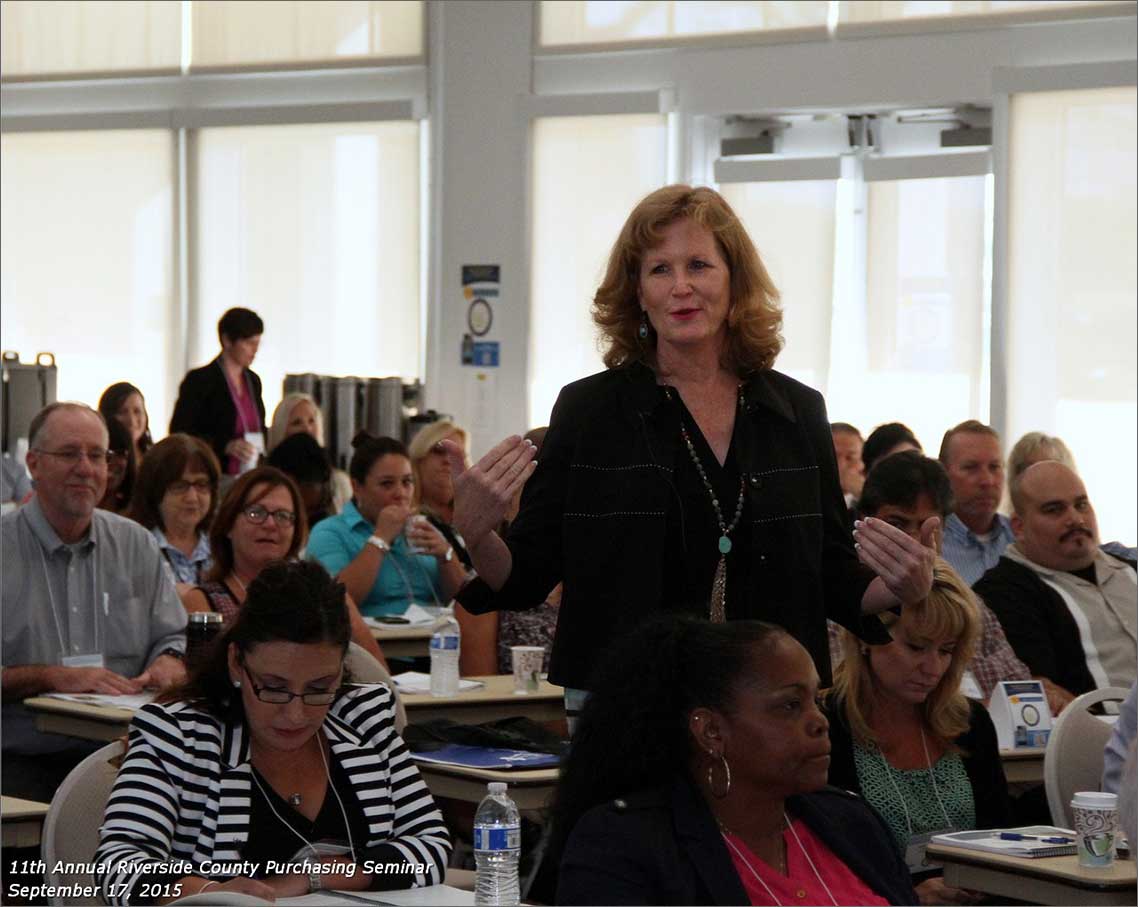Procurement Consulting Services
As the former Purchasing Agent for the nation’s 9th largest City, and a consultant for cities, counties and local agencies across the country, Tammy Rimes knows government procurement. And as a former corporate salesperson and owner of a successful family winery, Tammy knows the “other” side of the table – selling. No matter what side of the table you are sitting on, Tammy can help your organization.

Services can include:
Initial Assessment
- Interviews with appropriate Agency staff in regards to current procurement processes, customer service expectations, and gain greater understanding of any challenges or changes needed
- Review the Agency’s Purchasing Policy and identify any existing policies or procedures that need to be updated or changed
- Review the sole source procurement process and compliance with regulations.
- Review all procurement activities from “cradle to grave” to document process with timelines and identify gaps, areas of concern or areas where automation might be helpful and available.
- Review and benchmark Agency with best practices used in government
- Provide a detailed report with identified areas for improvement or concern with recommendations for management’s consideration
Systems and Process Re-Alignment
- Identify and rectify any deficiencies within the procurement process, sole source procedures, or areas where greater savings in resources, time or money can be realized.
- Outline and create a newly updated manual with all procedures and policies – procurement, property disposal or quick and easy User Guides
- Review available RFP’s from other jurisdictions, cooperative agreements and demonstrations of capabilities by potential system providers for any new contract services or automation of existing duties
- Coordinate any system requirements and compatibility issues with Agency IT team
- Establish performance measures for each section / function / responsibility
- Create new reports for management and customer departments
- Meet with leadership of each department to identify and implement methods to improve service and coordination
- Organize and complete a random audit on the procurement process during an initial time period (1st quarter of the system/process implementation is recommended) to ensure quality assurance and system/process integrity.
Special Projects and Follow-up
- Upon implementation of new procedures, re-interview or survey customers to establish benchmark data and evaluate progress
- Training for procurement staff and/or customers on new policies and procedures or other identified areas of public procurement
Corporate Clients – Government can be a difficult client to understand. The sales cycle is long, often taking months to finally obtain a contract. The rules can be complicated, with long proposals and confusing terms and conditions. In addition, just navigating the various departments and hierarchy to find the right person to meet can be a challenge by itself. But it is possible. And the best part…once you land a government contract, it usually comes with a long-term commitment.

Training and consulting sessions can include:
- Learning more about government procurement and differences among the local government markets (city, county, school districts and agencies)
- Recognize the “rules” of public procurement and how it differs from private
- Understand how the government fiscal year works, and work it to your advantage
- Assess the various procurement methods – RFI, RFP, Bid, Quick Quotes and Sole Source
- Learn about Vendor Registration programs, and how to have your name on all their lists for quick quotes or bids
- Writing or reviewing your proposals to RFP’s
- Discover what works when talking to a government buyer and how to best organize a sales presentation
- Learn when you should protest, and how to ask for a debrief session
- How does local preference work for you or against you? MBE/WBE/Disabled Veteran Preference?
- Gain knowledge of the concept of “piggybacking” and cooperative contracts
- Create a marketing strategy that includes How to Do Business workshops, conventions and buyer events.